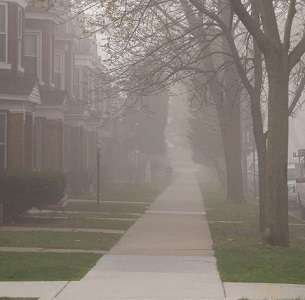A new study from Stanford University reveals that fine particulate matter (PM2.5) air pollution has led to disproportionately high death rates among Black Americans. Published in Nature Medicine, the research found that Black individuals face a “double jeopardy” of higher exposure to PM2.5 and greater susceptibility to its adverse health effects due to factors such as poverty, existing medical conditions, hazardous jobs, and lack of access to housing and healthcare.
The study, led by Assistant Professor Pascal Geldsetzer, analyzed data from 1990 to 2016 and found that Black Americans had the highest PM2.5-attributable mortality in 96.6 percent of U.S. counties. PM2.5, which includes particles from vehicle emissions and the burning of oil, coal, and wood, is small enough to lodge deeply in the lungs and enter the bloodstream, causing a range of health issues from asthma to heart disease and stroke.
Tarik Benmarhnia, associate professor at the University of California San Diego’s Scripps Institution of Oceanography and the study’s senior author, emphasized the global impact of PM2.5, calling it “the biggest environmental killer globally.” The research highlights the urgent need for targeted interventions to reduce PM2.5 exposure and address the underlying social determinants that exacerbate health disparities.
The findings underscore the critical importance of environmental justice initiatives to mitigate the disproportionate health burden faced by Black communities. By reducing air pollution and improving access to healthcare, policymakers can work towards closing the gap in health outcomes and ensuring equitable health for all.



